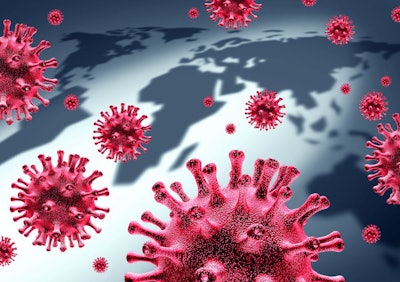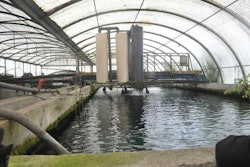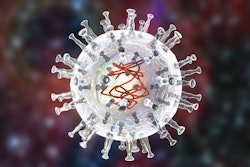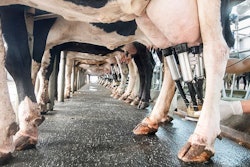
Food and agribusiness companies have seen their share of disruption during the pandemic
Global food and agribusiness industries reacted well to the novel coronavirus (COVID-19) pandemic and its challenges, but they have still seen their share of disruption and adaptation, according to two experts.
Jacqueline Pieters, lead finance and investment with the World Business Council of Sustainable Development at Rabobank, and Mark Lyons, president and CEO of Alltech, recently spoke at a Women in Food and Agriculture webinar, “How Have Different Food and Agribusiness Leaders Addressed COVID-19 Challenges?”
“I think the food industry has reacted extremely well,” Pieters said. “At the same time, you see specific sectors and areas with major disruptions,” such as meat production in several countries.
She said the agrifood industry’s volatility under normal conditions may have helped it adapt during the pandemic.
“Food companies are used to the fact that there are barriers where you suddenly have to change your sourcing or your markets,” she said.
Lyons said that, while the industry continues to operate during the pandemic, it has made changes to how it operates.
“In so many countries, the food sector was designated as essential,” he said. “And a really important message that I’ve seen is companies that responded to that to say, ‘Essential, yes, that means we must continue to operate, but that doesn’t mean business as usual.’”
Time to lead and innovate
Lyons said this could be a great time for the food and agribusiness industries to lead and innovate.
“Agriculture has an extraordinary moment right now to step out in front, to lead the way out of COVID, to think, ‘We don’t have to rebuild it the way it was. We can rebuild it in a new way,’ and we can really embrace some of these concepts that are coming out – really embrace this broader essence of sustainability and become a leader in the global economy,” he said. “2020 has to be the year that agriculture looks itself in the year and says, ‘Who do we want to be?’”
Pieters and Lyons said companies now have a broader view of what is important to them. While they still want quality, sustainability and low cost from of their partners, they now also know that trust is key.
“The confidence of having a supplier that is going to deliver for you suddenly shot up on the list” of priorities, Lyons said.
Pieters said companies need to increase their resilience by forming good partnerships that give them options for sourcing and distribution, and by focusing less on “just-in-time” production and more on “just-in-case” production.
“We’re so focused on ‘just in time’ that there is little resilience in any disruption. Maybe we should look into ‘just in case,’” she said. “It’s good to take a broader perspective than just looking into efficiency. Yes, it needs to be efficient, but maybe things should be more ‘just in case.’”
Long-term planning still important
Pieters added that, while many companies are just trying to survive in the short term right now, they must not lose sight of their long-term sustainability goals, because planning for the future is still important. Before the pandemic, she said Rabobank identified the key transitions for its clients to make in the next five years: the reduction of carbon emission, the improvement of quality of water and soil, the increase of digitalization, and the reduction of waste.
The pandemic has only stimulated conversation about these topics, she said, because people have seen that the unexpected can actually happen.
“People are realizing that the black swans that we have been discussing, like pandemics, are not black swans; it’s something that happens,” she said.
View our continuing coverage of the novel coronavirus (COVID-19) pandemic.












